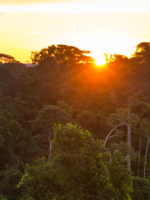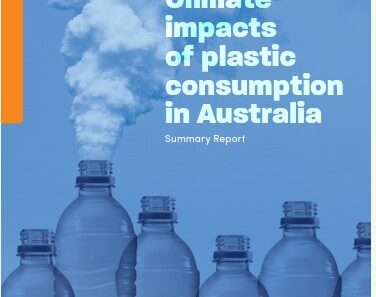Indonesia, an archipelago comprised of over 17,000 islands, is often hailed as the “Green Heart of the Earth.” This title is well-deserved, given that the nation is rich in biodiversity and possesses some of the most expansive tropical forest ecosystems globally. These forests serve as crucial buffers against climate change, acting as carbon sinks that sequester vast amounts of carbon dioxide, thus mitigating the greenhouse effect. However, the ongoing deforestation and environmental degradation pose a severe threat, not only to these ecosystems but also to the global climate. This discourse aims to delve into the multifaceted significance of Indonesia’s forests and the urgent need for their preservation.
Indonesia’s forests are an unparalleled treasure trove of biodiversity, home to endemic species such as the orangutan, Sumatran tiger, and the Javan rhinoceros. The lush canopies of these forests provide habitat and sustenance to millions of species, forming intricate ecological networks that are critical for the overall health of the planet. Yet, the rampant logging, both legal and illegal, along with agricultural expansion, threatens these irreplaceable natural resources. Recognizing the intrinsic value of these forests is the first step in fostering a collective commitment to their protection. Environmental degradation not only diminishes biodiversity but also undermines local communities that rely on these ecosystems for their livelihoods.
Furthermore, the forests of Indonesia play a pivotal role in regulating the global climate. They absorb substantial amounts of carbon dioxide, which helps mitigate the impact of climate change. However, when these forests are cleared for agriculture, mining, or urban development, the stored carbon is released back into the atmosphere, exacerbating climate change. The Forest Carbon Partnership Facility established by the World Bank, along with various local initiatives aimed at sustainable forest management, highlights potential pathways to reverse this detrimental trend. These programs represent a shift in conservation philosophy, focusing on partnership with local communities to promote sustainable practices that provide both economic benefits and environmental protection.
The advancement of ecotourism offers a promising avenue for conservation efforts. By fostering a sustainable tourism model that highlights the beauty and uniqueness of Indonesia’s natural landscapes, communities can gain economically while becoming stewards of the environment. This model establishes a symbiotic relationship between tourism and conservation, particularly in areas like Borneo and Sumatra, where the allure of the tropical rainforest attracts visitors from around the globe. The financial influx generated from ecotourism can be reinvested into local infrastructure and conservation initiatives, creating an economically viable alternative to deforestation.
Indigenous communities possess invaluable traditional ecological knowledge that can significantly aid in conservation efforts. Their intimate understanding of the land and ecosystems enables them to manage natural resources sustainably. Yet, these communities often face systemic challenges, including land rights issues and socio-economic pressures. Protecting their rights and integrating their knowledge into forest management plans is essential for effective conservation. By honoring their contributions, the movement toward a more sustainable future can become a collaborative effort, enriching the tapestry of conservation practices in Indonesia.
The Indonesian government’s commitment to the Paris Agreement underscores a significant political will to combat climate change. As part of its obligations, Indonesia has pledged to reduce greenhouse gas emissions by 29% by 2030. Nevertheless, the execution of these promises hinges on reconciling economic development with environmental preservation. The transition from fossil fuel dependency to sustainable energy sources represents a monumental shift in Indonesia’s developmental paradigm. Through investments in renewable energy and sustainable agriculture, Indonesia can set a global precedent for balancing economic growth while protecting vital ecosystems.
The international community’s role in supporting Indonesia’s conservation efforts is paramount. Financial investments, technological transfer, and capacity-building programs can bolster national and local initiatives aimed at forest preservation. Organizations dedicated to wildlife conservation and sustainable development must work collaboratively with Indonesian authorities to implement monitoring systems that track deforestation rates and enforce regulations. By fostering transparency and accountability, the global community can significantly contribute to Indonesia’s efforts to combat deforestation and promote sustainability.
Moreover, awareness campaigns aimed at educating the public about the importance of Indonesia’s forests are critical. By showcasing the intricate relationship between human activities, forest ecosystems, and climate change, communities can become champions of conservation. The dissemination of information through various media platforms encourages grassroots activism, resulting in a collective consciousness that values and advocates for the preservation of the environment. Engaging storytellers, artists, and scientists can potentiate a vibrant discourse around the climate crisis, galvanizing societal momentum toward environmental stewardship.
In conclusion, protecting Indonesia’s forests is not merely an environmental imperative but a moral obligation. The interconnectedness of climate change, biodiversity loss, and human well-being necessitates a concerted effort to preserve these critical ecosystems. By adopting a holistic approach that marries conservation with socio-economic development, Indonesia can serve as a beacon of hope in combating climate change. Through collaborative efforts that honor indigenous wisdom, promote sustainable practices, and enhance global cooperation, the “Green Heart of the Earth” can continue to thrive, offering resilience in the face of climate adversity. The momentum needed to achieve such transformative change is palpable; the time to act is now.








